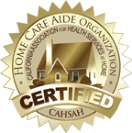Providing health care is demanding work. The pressure of caring for the sick or elderly, dealing with demanding patients and worried relatives, exposure to occupational hazards, and long working hours are some of the reasons why. Often, the result is stress which is your body’s reaction to feeling under pressure. Too much stress can be harmful and you may suffer personally, socially and professionally.
The key to coping with stress is to identify the causes of stress and recognize its signs. Stress may show up as physical problems that may include: exhaustion, muscle tension, back pain or neck pain, unexplained chest pain, headaches, digestive problems, weight gain or loss, sweaty palms, and skin rashes. You may also develop mental or emotional problems like anxiety or depression, irritability, anger, loss of or low self-esteem, poor concentration or forgetfulness, feelings of helplessness, and inability to appreciate or enjoy life. The end result may be a condition called “caregiver burnout”.
Fortunately, there are ways to reduce stress and avoid job burnout. Be kind to yourself. Adopting a positive and realistic attitude can be an effective stress buster. Remember that perfection is an ideal that can rarely be achieved; instead, take pride in giving your best effort. Constant sacrifice won’t help anymore; when you’re sick, take a break to recover. At the end of each day or shift, focus on completed, rather than uncompleted tasks.
Develop time management skills to be more productive. Write down your responsibilities; prioritize; pace yourself; tackle one task at a time but don’t procrastinate; when appropriate, combine jobs; and seek help if things pile up.
Learn to relax and do deep breathing, progressive relaxation, creative visualization, and meditation. These methods reduce stress and enhance your well-being. Take short breaks to regain your energy.
Communicate well: practice assertiveness; give and accept positive comments, avoid keeping to yourself, and make your needs known. Follow standard precautions and infection control guidelines; follow all other policies on occupational safety.
Take good care of yourself. Exercise regularly; eat a variety of healthy foods each day; get enough sleep; quit smoking; limit alcohol and caffeine; develop your interests, hobbies and talents outside of work; and treat yourself often (take time to soak in the tub, prepare a healthy meal, attend a sports event, visit a friend, or enjoy a special outing).
Remember that alcohol or other drugs are never a solution to stress. If you feel depressed for a long time, seek professional help. Build a strong support network through group activities or your place of worship. Getting–and staying–involved can help reduce stress.
Many resources are available to help manage stress. These include: stress management seminars; in-service clinics; Employee Assistance Programs (EAPs); employee health services; and professional counseling.
Almost every job has stress but health care workers may be especially at risk. Other factors such as your age, health, financial situation, and satisfaction with life in general, affect your reaction to stress. Take steps to reduce stress and don’t let it run–or ruin–your life!







